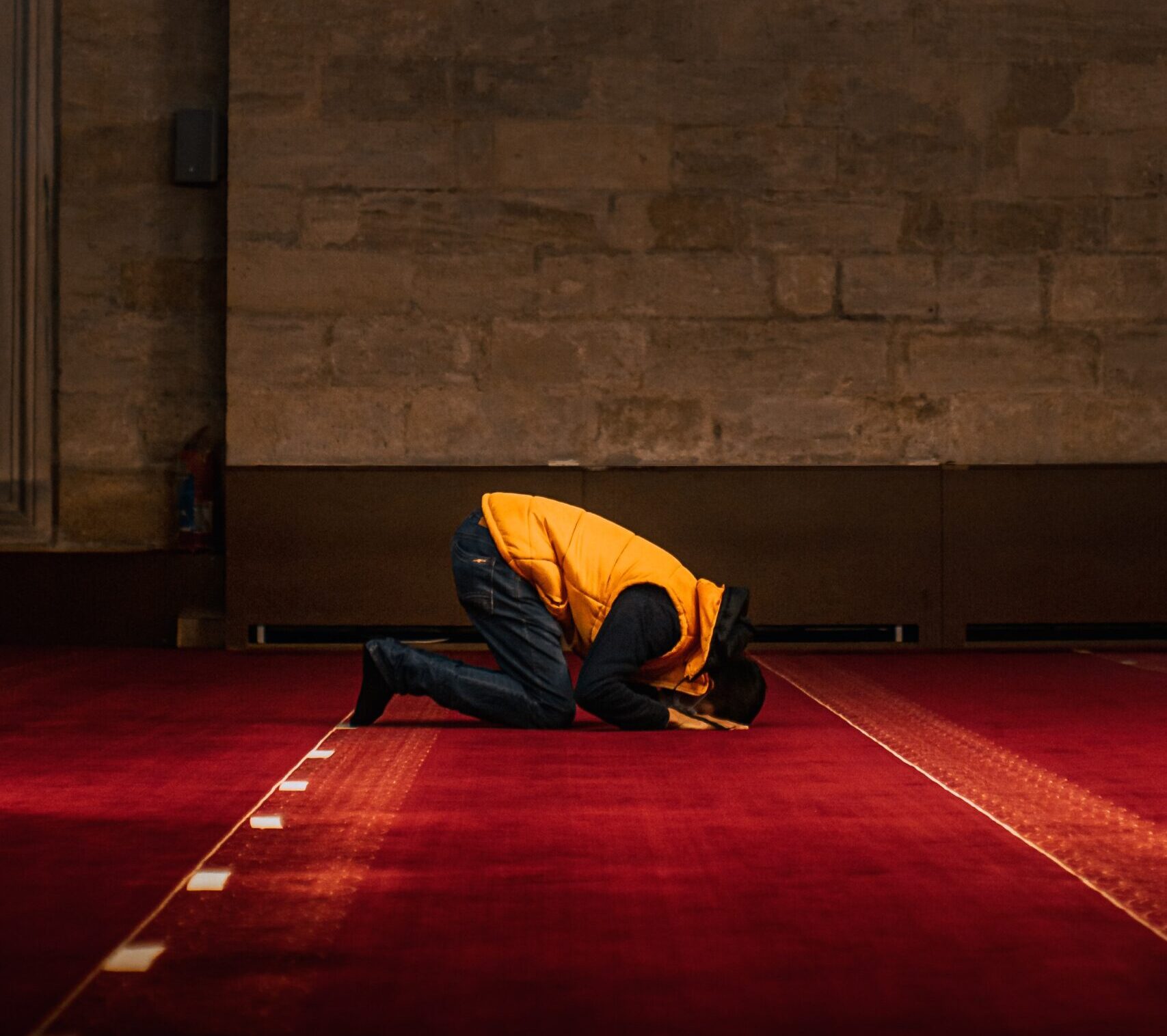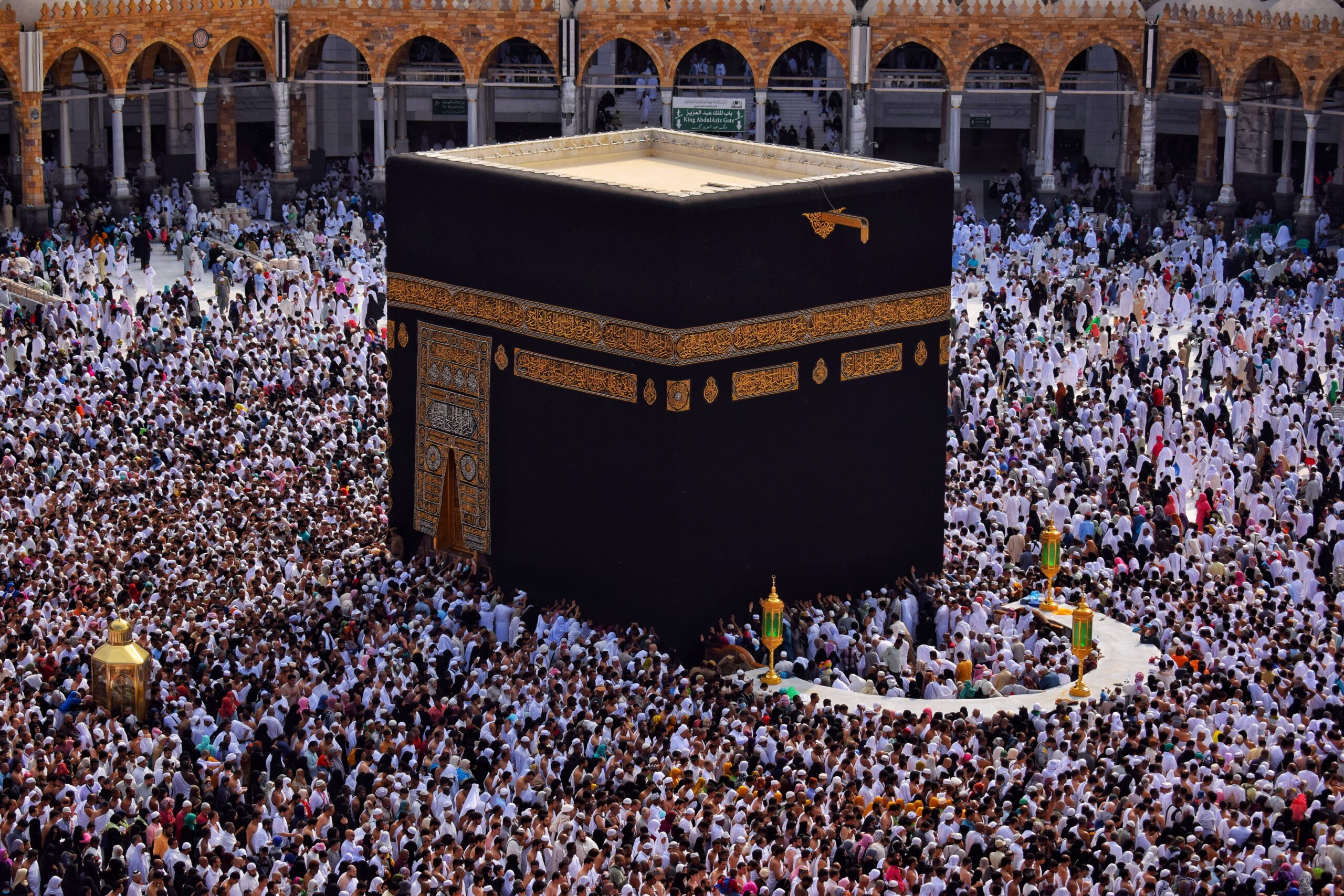The religious practice of Islam (literally means submitted to God) is based off the tenants known as the 5 pillars of Islam. A Muslim is expected to adhere to each of the 5 pillars in order to please God. The pillars define the basic identity of Muslims – their faith, beliefs and practices – and bind together a worldwide community of believers into a fellowship of shared values and concerns.
1. Profession of Faith (Shahada)
Muslims bear witness to the oneness of God by reciting the phrase “There is no God but Allah and Muhammad is his messenger.” This is the foundation of a Muslim’s belief and expresses their commitment and complete acceptance to Islam. Usually written in Arabic, the Shahada is featured in architecture and a range of objects including Islam’s holy book, the Qur’an.

2. Prayer (Salat)
Muslims are obligated to pray 5 times a day facing the direction of Mecca. The times to pray are at dawn, noon, mid-afternoon, sunset and after dark. They can pray in the neighborhood mosque where the mosque leader (imam) leads the prayers or at home. Most public areas (malls, restaurants, parks) have a musholla where they can pray as well. They recite the memorized prayers in Arabic.
Every Friday at noon, the men gather in the mosque to pray and listen to a short sermon focused on a passage in the Qur’an from the imam. They then are led in a discussion of a particular religious topic.

3. Alms-giving (Zakat)
In accordance with Islamic law and social responsibility, Muslims donate a fixed portion of their income (2.5%) to community members in need. Wealthy Muslims will build mosques, schools, fountains, and hospitals as a religious duty. When they give zakat, they believe they are securing blessings and rewards from Allah.

4. Fasting (Sawm)
One of the 5 pillars of Islam is fasting. Every year they do what is required of them during the month of Ramadan. Muslims will abstain from eating, drinking, smoking and having sex from sunrise to sunset each day in order to please God (Allah) and seek forgiveness for past sins.
They usually wake up at 4:30 am to share a meal together (sahur). But the women will wake up earlier than that to cook the meal! They will then break fast at sunset by first eating dates and drinking water (recommended by Muhammed). Then they will eat a meal together. After that they will go to the mosque to pray. The end of Ramadan is observed by 3 days of celebration called Eid-al-Fitr. It is a time for family reunion and giving gifts.

5. Pilgrimage (Hajj)
If a Muslim is financially and physically able, they must take a religious pilgrimage to the holy city of Mecca, in present day Saudi Arabia. This is the peak of their religious life. They walk around the Ka’ba 7 times on the 8th and 12th days of the final month of the Islamic calendar.
The Ka’ba is the black cubic structure at the center of the Haram mosque in Mecca. Muslims believe that this is the house Abraham built for God and they face its direction when they pray. The Hajj attracts 3 million pilgrims from around the world every year. In Indonesia, usually you have to be on a waitlist for 10-20 years before you can make the Hajj!
